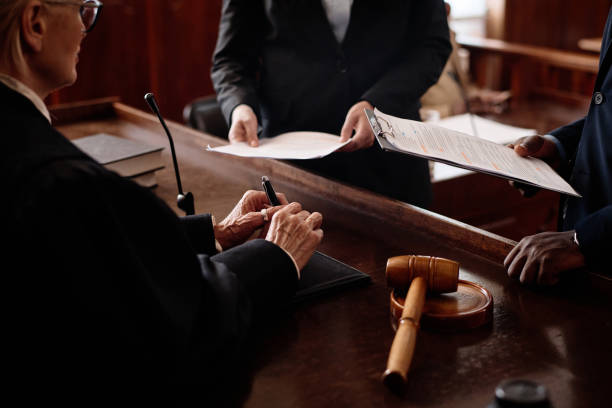the Wall, We Are Right
There With You
When facing criminal charges in California, the legal process can be overwhelming, and the consequences of a conviction may be life-altering. One of the most common ways criminal cases are resolved is through plea bargaining, which allows defendants to avoid the uncertainties of a trial by negotiating a deal with the prosecutor. In this detailed article, we’ll explore everything you need to know about plea deals in California, the stages involved, the potential benefits and risks, and how working with an experienced defense team at Power Trial Lawyers can help secure the best possible outcome in your case.
This guide is designed to provide a thorough understanding of the plea deal process in California, particularly for those facing criminal charges in Los Angeles or Orange County. By the end of this article, you’ll have a clear picture of how plea deals work, what to expect at each stage, and why having a skilled criminal defense attorney by your side is crucial.

A plea deal, also known as a plea bargain, is an agreement between the defendant and the prosecution in which the defendant agrees to plead guilty or no contest to a criminal charge in exchange for concessions from the prosecutor. These concessions can include reduced charges, a lighter sentence, or the dismissal of certain charges.
In California, plea bargaining is an integral part of the criminal justice system. The vast majority of criminal cases—up to 95%—are resolved through plea deals, allowing both the prosecution and defense to avoid the time, expense, and unpredictability of a trial. However, accepting a plea deal means waiving your right to a trial, so it’s important to carefully consider the implications of this decision.
The criminal process in California is designed to resolve cases efficiently, and plea deals play a significant role in this. By offering a defendant a plea deal, the prosecutor can:
For the defendant, the benefits of a plea deal include potentially avoiding the harshest penalties, reducing the charges, and shortening the legal process.
While the specific terms of a plea deal can vary, they generally fall into the following categories:
Each type of plea deal has its advantages and disadvantages, depending on the circumstances of your case. An experienced criminal defense attorney will help you determine which type of plea, if any, is in your best interest.
The plea deal process in California typically follows a structured path, although it can vary slightly depending on the jurisdiction and the complexity of the case. Here’s an overview of the major steps:
The process begins with the defendant’s arrest and the filing of formal charges. In California, the charges can range from minor misdemeanors to serious felonies. After the arrest, the defendant is booked, and the prosecution begins reviewing the evidence to determine the strength of the case.
During the arraignment, the defendant is formally charged and enters a plea—usually “not guilty” at this stage. The arraignment is also when bail is set, and a schedule for future court proceedings is established.
At the pretrial hearings, both the defense and the prosecution present motions and argue about what evidence will be allowed at trial. It’s often during this phase that the defense attorney begins discussing a potential plea deal with the prosecutor. Factors influencing whether a plea deal is offered include:
In some cases, the defense attorney may approach the prosecutor first, particularly if the defense believes there’s an opportunity for a favorable plea deal.
Once the defense and prosecution agree on the terms of a plea deal, the judge must approve the agreement. The judge will ensure that the defendant is entering into the plea voluntarily and that they fully understand the rights they are waiving, including:
If the judge believes the plea deal is appropriate, they will accept it and schedule a sentencing hearing.
In misdemeanor cases, sentencing often occurs immediately after the plea is entered. For felony cases, the judge will schedule a sentencing hearing. In the interim, the court may order a presentence report, which provides additional information about the defendant’s background, the crime, and any mitigating or aggravating factors.
Sentencing is a critical part of the plea deal process, as it determines the actual penalties the defendant will face, including fines, probation, community service, or imprisonment.
There are several reasons why accepting a plea deal may be in your best interest, particularly if the prosecution has a strong case against you:
While there are advantages to accepting a plea deal, it’s important to understand the potential risks:
Deciding whether to accept a plea deal is a complex decision that depends on several factors, including:
At Power Trial Lawyers, our experienced criminal defense attorneys will carefully evaluate the facts of your case and provide clear guidance on whether accepting a plea deal is in your best interest. We aim to negotiate aggressively to secure the most favorable terms and ensure that you fully understand the consequences of the plea.
Navigating the plea bargaining process can be challenging without the guidance of a skilled attorney. At Power Trial Lawyers, we have extensive experience handling plea deals in Los Angeles and Orange County. Our team is committed to providing personalized representation that prioritizes your rights and protects your future. Whether you’re facing misdemeanor or felony charges, we will fight to secure the best possible outcome in your case.
If you’re facing criminal charges in California, don’t wait to seek legal help. The experienced team at Power Trial Lawyers is here to provide the representation you need to navigate the plea bargaining process. Call us today at (888) 808-2179 for a free consultation, or fill out our contact form to schedule an appointment. We are ready to fight for your rights and secure the best possible outcome in your case.
Facing criminal charges? Contact Power Trial Lawyers at (888) 808-2179 today for legal representation. Our team will guide you through the plea bargaining process and work tirelessly to protect your future.